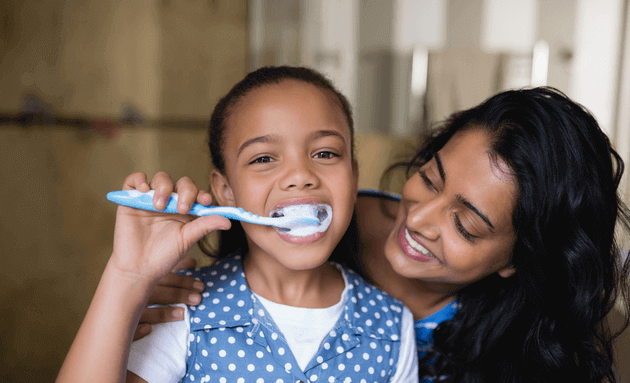Risk Factors for Lip and Oral Cancer

Oral Cancer, or Mouth Cancer, may occur anywhere in the mouth such as on the lips, inside the cheek, on the surface of the tongue, in the gums, on the roof and floor of the mouth, in the salivary glands, and in the tonsils.
Lip Cancer is a type of Oral Cancer and can occur anywhere along the skin of the lower or upper lip.
20 in every 100000 Indians are diagnosed with Oral Cancer, which accounts for around 30% of all Cancers in India; and over 5 people die every hour because of Oral Cancer.
Oral Cancer in India

Oral Cancer is a major health problem for India, where it is ranked the third highest in the types of Cancer affecting Indians. It is attributed to various etiological factors such as chewing tobacco and alcohol consumption. Central India reported the highest incidence of Oral Cancer for both genders.
Lip Cancer specifically showed the highest prevalence in the North-eastern region, for people (males and females) above the age of 70.
Low-income groups in India are most affected because of lack of exposure to proper diagnosis and treatment in the early stages.
What are the Top Risk Factors for Oral Cancer?

Certain conditions or substances can increase one’s risk of developing Cancer. Tobacco and alcohol are proven risk factors for Oral Cancer. However, there is convincing evidence that the following can be risk factors as well:
- Tobacco: Smoking cigarettes, cigars, pipes, or chewing tobacco increases the risk of Oral Cancer, especially that of the Lips. Smokeless tobacco, such as chewing and snuffing, can also pose an equal threat to Oral health.
- Alcohol: The more you drink alcohol, the greater you are at risk for Cancer, especially if you’re a regular user of tobacco as well.
- Betel Quid or Paan: Chewing betel quid, popularly known as paan, is a common practice in India. Betel quid and tobacco are often chewed together, and greatly increases the risk of Oral Cancer. The World Health Organisation has classified betel nut as a carcinogen.
- Human Papillomavirus (HPV): HPV, which are further classified into more than 100 different types of viruses, can spread through oral sexual contact. They can infect the mouth and throat from oral sex. HPV-16 and HPV-18 increase risk of Oral Cancer and is not linked to tobacco or alcohol consumption.
- Family History: A history of Squamous Cell Carcinoma, or SCC, is the most common type of Oral Cancer. If a primary family member has had a history of SCC, the risk for other family members increase.
- Exposure to the Sun: People who work in the sun for long hours are exposed to a greater risk of Oral Cancer. Harmful UV rays from the sun may cause cancer, and the lower lip is 12 times more susceptible to Lip Cancer because of its prolonged exposure.
- Low Intake of Vegetables and Fruits: Foods such as spinach, tomatoes, carrots, and bell peppers contain carotenoids, which are pigments known to have antioxidant properties, are known to reduce the risk of cancer. A diet low in such vegetables and fruits can increase the risk of Oral Cancer.
- Weak Immune System: People with a weak immune system have a higher risk of developing Oral Cancer. They are also more likely to contract the HPV infection, which increases their risk. The drugs used to suppress the immune system after an organ transplant or treatment for an immune system disease may be a likely cause for an increased risk.
- Lichen Planus: A chronic condition that forms rashes, ulcers, or sores inside the mouth, the Lichen planus can increase risk of Oral Cancer if left untreated for a long period of time. The exact cause of Lichen planus is unknown, although it is attributed to an autoimmune disorder sometimes.
- Poor Oral Health: People who don’t follow a good oral routine run the risk of developing Oral Cancer. Bleeding gums, missing teeth, infection from the HPV, or not visiting the dentist regularly for checkups and hygiene can lead to Oral Cancer.
- Genetic Conditions: Some people may inherit conditions such as Fanconi anaemia and Dyskeratosis congenital (which are essentially genetic conditions that affect bone marrow and growth of abnormal red blood cells respectively), and have a higher risk of developing Oral Cancer.
- Graft-versus-Host-Disease (GVHD): GVHD is a condition when the body’s stem cells mistake the body as foreign and start destroying cells, even in the mouth. It may happen to people who have had a Stem Cell Transplant, thereby increasing their susceptibility to Oral Cancer.
Other possible risk factors include poorly fitting dentures and drinking hot beverages, along with smoking marijuana and using alcohol-based mouthwash.
How Can Oral Cancer Be Prevented?
You can play an active part in detecting and preventing Oral Cancer in the early stages with a few simple steps and lifestyle changes like:
- Conduct a self-exam every month
- See your dentist at regular intervals
- Refrain from smoking or chewing tobacco and limit your alcohol consumption
- Switch to a healthy, well-balanced diet with vegetables and fruits
- Use sunscreens and lip balms while out in the sun
Get in touch with your dentist if you want to set an oral hygiene routine for yourself and help prevent Oral Cancer.


